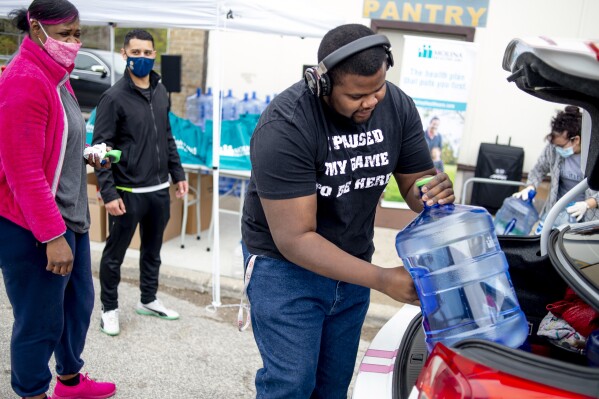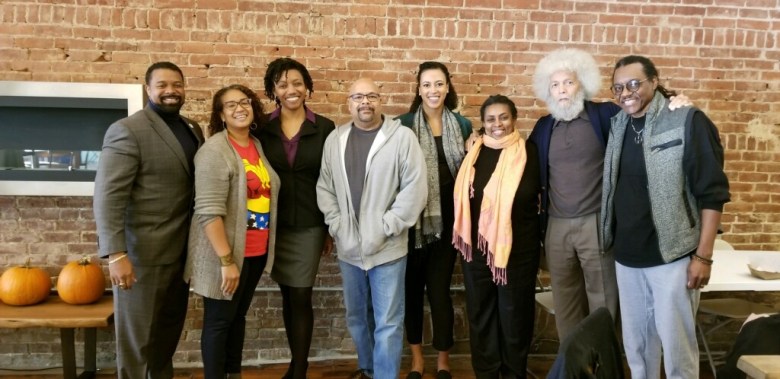|
Listen to this article here
Getting your Trinity Audio player ready...
|
My father would wear his shirts to death. His decades-old Hard Rock Cafe muscle tee was riddled with holes and holding on by a thread. He called it his “good shirt.” He’d wear it when working in the garage or mowing the lawn. When the straps would eventually snap, he’d cut them into smaller pieces to use as shammies for washing the car. Saved Gatorade bottles were his favorite water containers that he would reuse hundreds of times. Although it might not be the trendiest of water bottles, he was perfectly content reusing what others considered trash. Whether he knew it or not, my father was aiding in the sustainability of our environment and, at a small fraction, slowing climate change.
Examples of this vary from family to family. Consider this, it might have been a Country Crock butter tin that stores anything but butter—or the dreaded hand-me-downs instead of getting a new pair of shoes for the school year.
Although that might not be what we call it, sustainability has long been ingrained in Black communities. Reusing what we already own instead of buying something new is a staple of the culture.
Per capita energy consumption is lower in Black neighborhoods. This could be partly due to the “you’re running up my light bill” or “either come in or stay out” lectures we often received as children. Despite using less energy, low-income Black households have higher utility bills because the homes are less energy-efficient.
Systemic Disparities
As the side effects of a rapidly changing climate become all too apparent, Black people in America are disproportionately impacted. More than half of Black Americans live in the South, a region that expects to see an increase in severe weather in the coming decades.
High summer temperatures also unfairly affect Black communities. One study found that Black people are twice as likely to die because of heat waves. The outside temperature heavily influences air quality. When it’s hot, the air quality is significantly worse.
Government entities place pollution sources near people of color (POC) and low-income communities at a disproportionate rate. Illnesses like asthma and heart disease manifest as side effects of air pollution and are exacerbated in hot weather. These effects likely influence our stance on climate change.
A poll from the Yale Program on Climate Change Communication shows that Black and Latino voters are more concerned about climate change than the national average.

And if it’s not the air or water that’s attacking us, then it’s systemic racism in the form of displacement.
Climate Change Gentrification
In popular real estate markets like Miami, Florida, a new practice is quickly growing: Climate gentrification is when minority and low-income communities are displaced to make room for affluent neighborhoods to move further inland. Rising sea levels aren’t good for property values, so developers seek higher ground.
For people who unconsciously practice sustainability, it’s unfair that we have to pay a higher price for man-made climate change. Luckily, there are several organizations full of people fighting the good fight against disparities people of color often face in this country.
Related Stories
Fostering Sustainability Through Environmental Justice Advocacy
Numerous groups exist to advocate for Black communities and the disparities we face in environmental quality.
One of those groups is the Pittsburg-based Black Environmental Collective. They educate and activate Black communities on issues of environmental justice.
Director of Black Environmental Collective Alyssa Lyon spoke with The Black Wall Street Times about the organization. “Our mission is to cultivate a regional network of Black people and organizations to understand and confront the root causes of environmental injustice,” Lyon said. The programs the Collective provides are to promote the well-being of Black communities. “A lot of environmental justice communities are marginalized and we work specifically to use our resources to uplift Black spaces.”
Originally from the Bronx, Lyon moved to Pittsburg for college and engaged in the non-profit sector. After noticing the intersection of systemic disadvantages in the local community with environmental factors, she started pushing for change. “Once I started to look at the space, I recognized that the sector is completely White and greenwashed.”

The Black Environmental Collective is working to engage more young people in the movement. “The world is pretty aware that young people start and keep movements going,” she said, “We have spaces on our community advisory board open for young people to be a part of that and to continue to influence the direction of the Collective.”
“The environment is in everything you do. Don’t think of it as tree-hugging but as the air you breathe and what kind of sidewalks you want to walk on.” She continues, “Really think about what you deserve. Although we have been subjected to a lot of systemic racism, we can still advocate and take up space because that’s what we deserve.”
Policy Initiatives
There are also efforts at the federal level working to right the wrongs minority Americans face. On April 21, 2023, President Biden created an Executive Order that established federal action to address issues of environmental justice in minority and low-income communities. The order includes two new councils and a system to track the progress of EJ programs.
Exclusive History of Environmentalism & Sustainability
As our world embarks on the journey to a green future, it is crucial to incorporate minority voices. President Theodore Roosevelt catapulted modern environmentalism to the public’s attention. Dubbed the “conservationist president,” Roosevelt created the United States Forest Service. It protects millions of acres of public lands. He found inspiration in the obvious degradation of native wildlife that he witnessed during his visit to Badlands National Park.
While his contributions resulted in the creation of the National Park Service, it’s important to contextual the influence of colonialism in the depletion of North America’s natural resources.
Native groups have long practiced symbiotic relationships with nature. It wasn’t until settlers arrived in North America that unsustainable practices ravaged local ecosystems. A famous example is the deliberate killing of the American Bison to starve Native peoples.
Now, federal agencies are recognizing the need to incorporate Indigenous knowledge into environmental policy.
The Legacy of Sustainability in Pre-Colonial Africa and its Relevance in the Face of Climate Change
Before the trans-Atlantic Slave Trade and colonization, Africa was a flourishing continent that practiced agriculture and trading systems between villages and regions. The concept of balance within ecosystems has been integral to many African civilizations throughout history; thus, its sustainability was its heritage. Consequently, it’s why European traffickers brought our ancestors to the Americas — because of the Africans’ useful farming and crafting knowledge, overlooking the importance of balance and sustainability.
Later, Europeans would come to discover that Africa had more to offer besides humans as commodities and palm oil, but that the continent was rich with raw materials and natural resources. Coined the “Scramble for Africa,” this era altered the stability of the continent. To this day, African countries suffer due to the exploitation of those resources.
Between the 16th and 19th centuries, European capitalism co-opted ideas long ingrained in Black and Indigenous communities, presenting them as new and revolutionary. While it may have been for their self-preservation in their so-called ‘new world’ — the Americas, their abuses of the world’s natural resources and the commodification of POC to achieve their goals have accelerated climate change to this day.
As we celebrate Black History Month, let us honor the legacy of sustainability within Black communities and recommit ourselves to the fight for environmental justice. Let us amplify the voices of those on the frontlines of this struggle and support their initiatives. And let us remember that the battle against climate change is inseparable from the fight for racial justice. In the words of Alyssa Lyon of the Black Environmental Collective, “The environment is in everything you do.” It’s time to recognize that truth and act accordingly.



Leave a comment